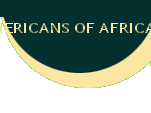WE ARE AMERICANS OF AFRICAN DESCENT
The Naming of Us Proclamation Ceremony, Uriah J. Fields' letter to the "Los Angeles Times" and Henry Louis Gates Jr.'s letter of reply to a letter he received from Fields Fifteen years ago.
In early 1994, Henry Louis Gates, Jr. Chair of the Afro-Amercian Studies Department and Chair of the W.E.B. DuBois professor of Humanities at Harvard University published the book, "Colored People." After this quote from Zora Neale Hurston, "I remember the very first day when I became colored," Gates writes a letter that constitutes the "Preface" of his book to his daughters Maggie and Lisa. He says, "In your lifetimes, I suspect, you will go from being African Americans to 'people of color,' to being, once again, 'colored people.'... But I have to confess that I like to be called 'colored" best."
I read this book shortly after it was published and at a time when I was deeply engaged in the "search for the true ethnicity name for American citizens who are descendants of African Aborigines." At that time I led a group who frequently attended the People United Freedom Forum which I moderated in Los Angeles and some of whom were members of the Mutuality Warrior Corps. They assisted me in organizing and presenting "The Ethnicity Naming of Us Ceremony" on behalf of all fellow black Americans. During that ceremony participants ratified "Americans of African Descent" as the true name for "us." ("us" does not mean the United States. In this discourse it means the obvious, "us," not "them.)
Following the "Ethnicity Naming Ceremony," on June 9, 1994, this article appeared in the "Los Angeles Sentinel:"
"WE ARE AMERICANS OF AFREICAN DESCENT." Never again must it be said among us 'Nobody knows our Name," declared Dr. Uriah J. Fields, Encourager-in-Chief of the Mutuality Warrior Corps, during ratification of the Ethnicity True Naming Ceremony for American citizen who are descendants of aboriginal Africans held on June 5, 1994 in Los Angeles, California.
The "Ethnicity Naming of Us Ceremony" was the highlight of the Fourth Anniversary of the Mutuality Warrior Corps observance.
During this event the Ethnicity Naming of Us Proclamation was issued and the name AMERICANS OF AFRICAN DESCENT" was ratified by partricipants on behalf of 27 million Americans who are descendants of African aborigines.
This is the first time aboriginal African American citizens have declared by a ratification process and mandate the name by which they are to be ethnically known."
On June 12, 1994, the "Los Angeles Times" published the letter below in which Fields criticized Louis Henry Gates, Jr., for adopting and suggesting that his daughters call themselves "colored:"
"Of Names and Times
The book "Colored People" by Henry Louis Gates Jr., reviewed in the Book Review May 8 is a disappointment to black Americans. It is unthinkable that a descendant of African slaves and chairman of the Department of the Afro-American Studies at Harvard University would, in the '90, write to his two daughters:
"In your lifetimes, I suspect you will go from being African Americans to "people of color," to being, once again "colored people". ... I don't mind any of the names myself. But I have to confess that I like "colored" best."
Gates should know that I and most of the nearly 30 million descendants of aboriginal Africans, hence of slaves in America, do mind the name they are called. They have already rejected being called "Negro" "Afro-American" and "colored." Some have also rejected being called "African Americans" and "Blacks," except "Blacks" is considered to be the appropriate name to use when a descendant relates to "white racism."
While there may not be much hope for changing the mind of Papa Gates, I would like for his two daughters to know that 1) Papa does not know best, in this matter of your true name and 2) your true name is "Americans of African Descent.
Uriah J. Fields
Los Angeles Times"
After Gates received a letter from me in which I expressed my objection to "Us" using the name "colored," and a copy of my letter to the "Los Angeles Times," he sent me this letter of reply:
"July 11, 1994
Dear Mr. Fields:
Thank you for your recent letter. We Americans of African Descent have expended much energy over the years determining what we should be called. There is, as we both well know, a valid reason: the ability to define is to exercise a measure of control, and we always stand in need of greater control over our own lives and destines. Various names have waxed and waned through history, and will, I'm sure, continue to do so. I appreciate the fact that you are conributing to the debate.
Sincerely,
Henry Louis Gates, Jr."
It is gratifying for me to know that Gates have since used the terms "African Amercian" and "black," as can be found in his book coauthroed with Cornel West, "The Future of the Race" (1996).
Although Gates, like myself uses the terms African Americans and Blacks, on many occasions, I also use the preferred name, Americans of African Descent. Hopefully Gates and other American citizens who are descendants of African aborigines, especially those W.E.B. DuBois referred to as the "Talented Tenth," will use the triple names: African American, Black and American of African Descent, each when most appropriate, as we hopefully achieve a post racial society which does not yet exist but is within sight as evidenced in the election of Barack Obama, as the first American of African Descent President of the United States.
It was a delight for me to be among the largest assembly of people ever gathered on the Washington Mall when Obama was inagurated in January 2009 as the Forty-Fouth President of the United States.
On that note, I rest my case.
Copyright 2009 by Uriah J. Fields
Uriah J. Fields is a clergyman, social activist and author. His most recent book is: "The Fields School: An African America School Without Failures in Rural Alabama 1933-1949." The author's paternal grandfather was the chief founder of the school which the author attended the first eight years of his schooling. Fields is also author of "Inside the Montgomery Bus Boycott: My Personal Story." (He, along with Martin Luther King, Jr., and sixteen other persons, was an organizer and original secretary of the Montgomery Improvement Association that provided organizational leadership for the Montgomery Bus Boycott.)


















































































































































